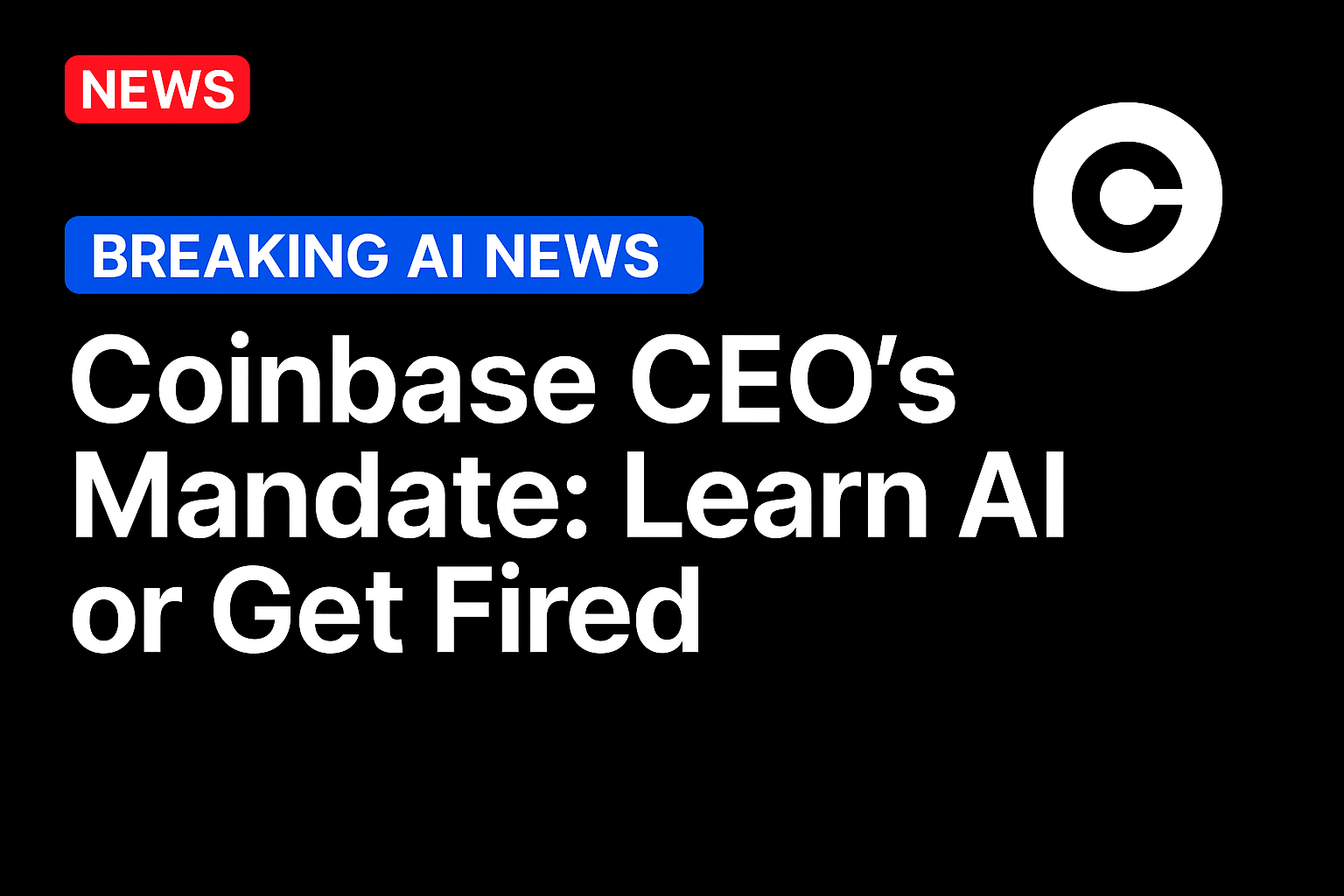When Coinbase embraced artificial intelligence (AI) adoption, its CEO gave workers a week to get on board.
During a podcast interview last week, Brian Armstrong said the cryptocurrency exchange had purchased enterprise licenses for GitHub Copilot and Cursor.
“Like a lot of companies, we’re leaning as hard as we can into AI,” Armstrong said during an episode of Cheeky Pint, hosted by Stripe President and Co-Founder John Collison.
However, some employees warned that AI adoption among Coinbase’s could take months, leading the CEO to push back.
“I went rogue,” he said, and posted a mandate in Coinbase’s engineering Slack channel. “I said, ‘AI is important. We need you to all learn it and at least onboard. You don’t have to use it every day yet until we do some training, but at least onboard by the end of the week. And if not, I’m hosting a meeting on Saturday with everybody who hasn’t done it and I’d like to meet with you to understand why.’”
Some of the people who came to that meeting had good reasons, Armstrong added, such as employees who had been on vacation.
“And some of them didn’t and they got fired,” he said. “Some people really didn’t like that, by the way, that heavy-handed approach. But I think it did at least set some clarity that we need to lean into this and learn about it.”
As PYMNTS has written, AI adoption rates among businesses can depend on the type of AI technology in question.
For example, the past few years have seen a surge in generative AI adoptions, with chief financial officers using this technology for tasks like content creation, customer service, coding and data analysis. Research by PYMNTS Intelligence has found that generative AI’s deployment for product and service innovation has risen 21% and for spotting fraud and errors up 31% since March 2024.
“Despite the benefits of generative AI and its growing importance, CFOs remain cautious about agentic AI due to fears it could go off script, leading to cascading payment errors, sanctions screening failures and compliance fines,” PYMNTS wrote last week, with just 15% of finance chiefs saying they are even thinking about putting agentic AI to work, with most still in the early evaluation stage.
“Challenges like infrastructure gaps, the transparency of large language models, and unsettled audit and regulatory standards further contribute to this hesitation,” PYMNTS added.
Source: https://www.pymnts.com/




